Fieldwork
This listing expired on September 28, 2023. Please contact fieldschooloman@gmail.com for any updated information.
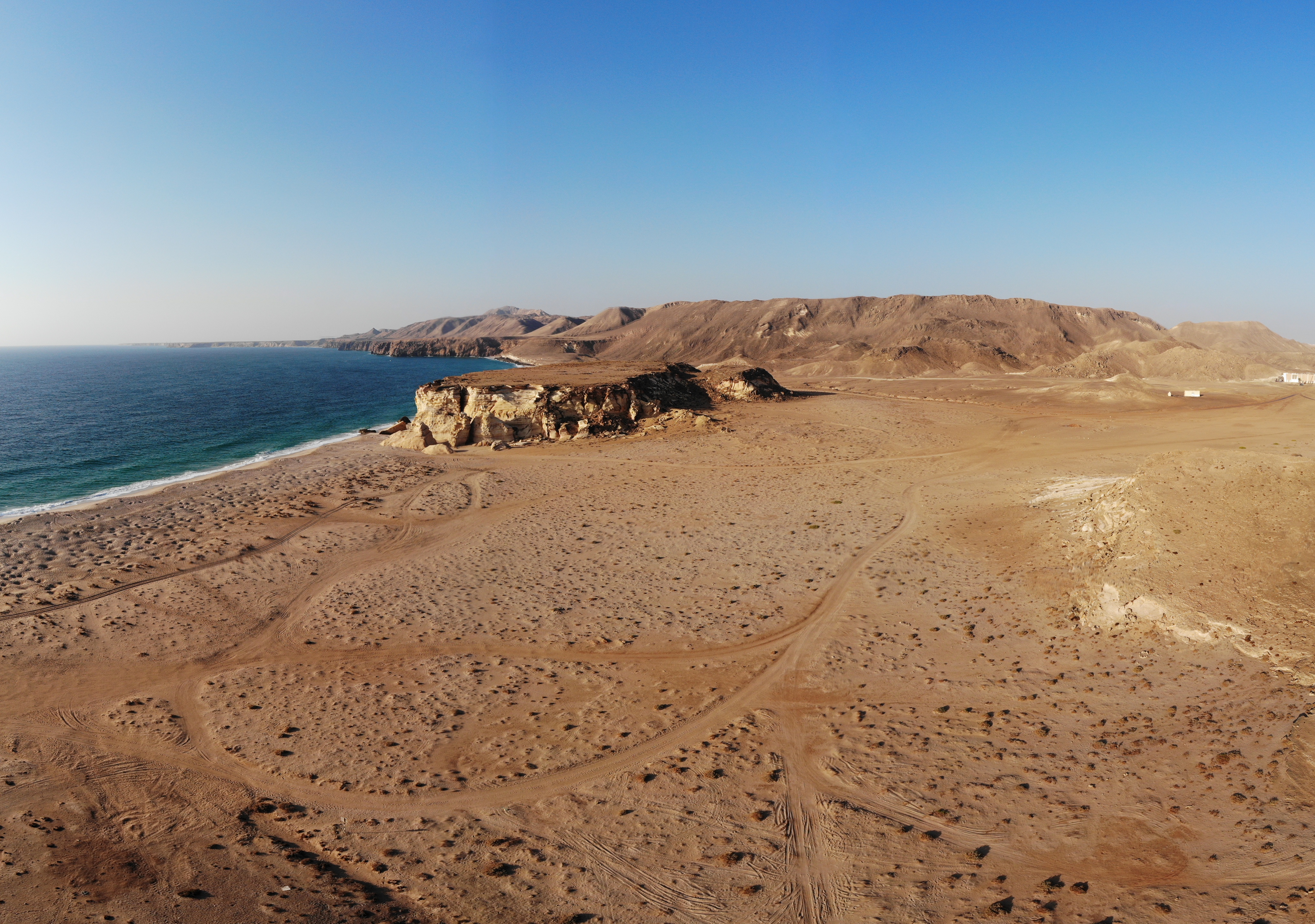
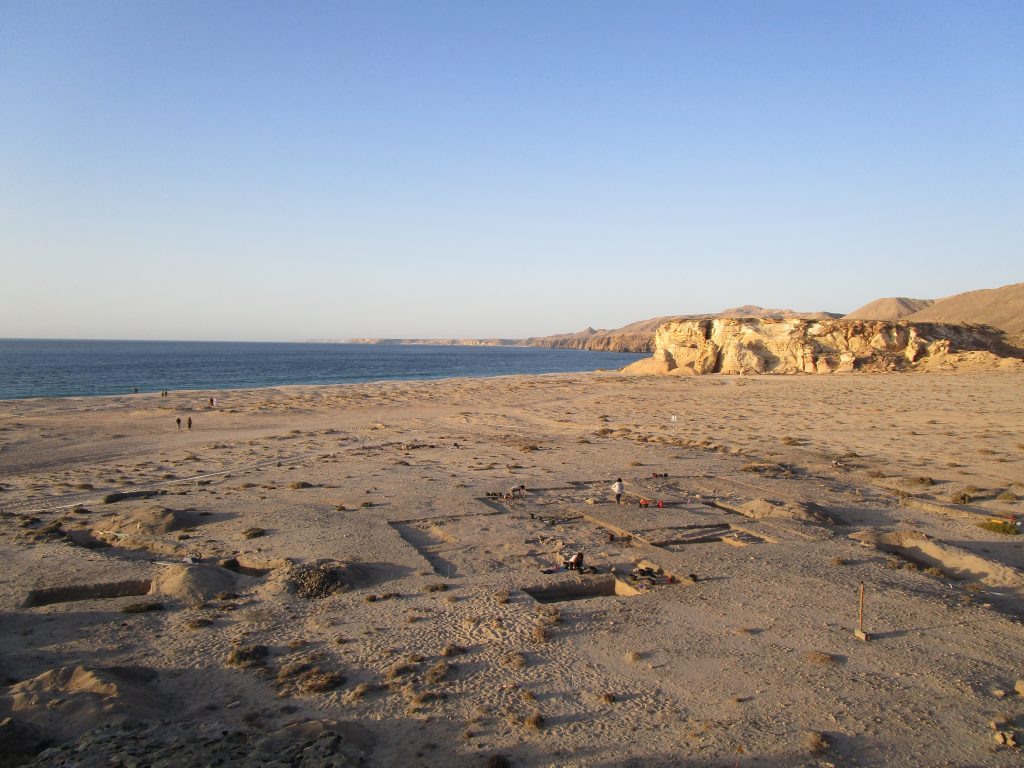
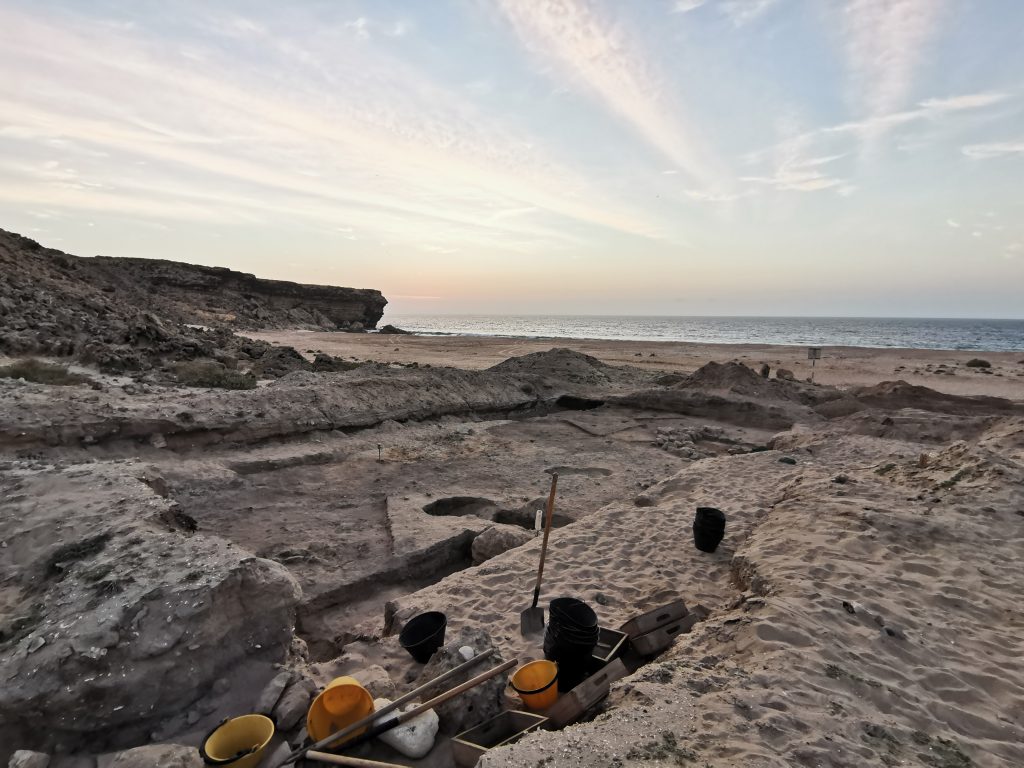
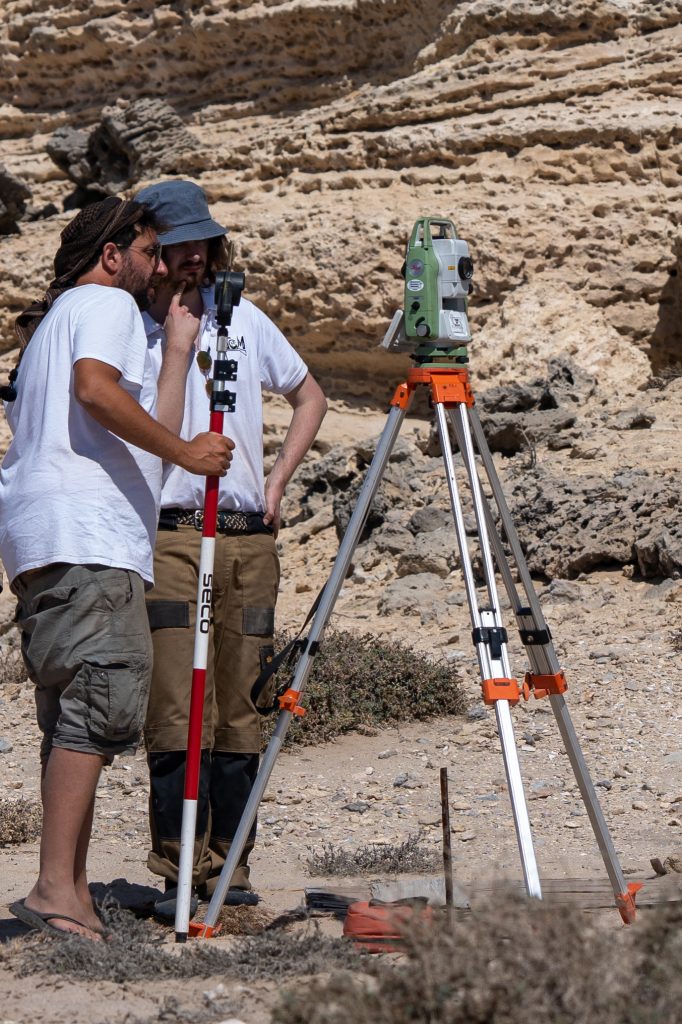
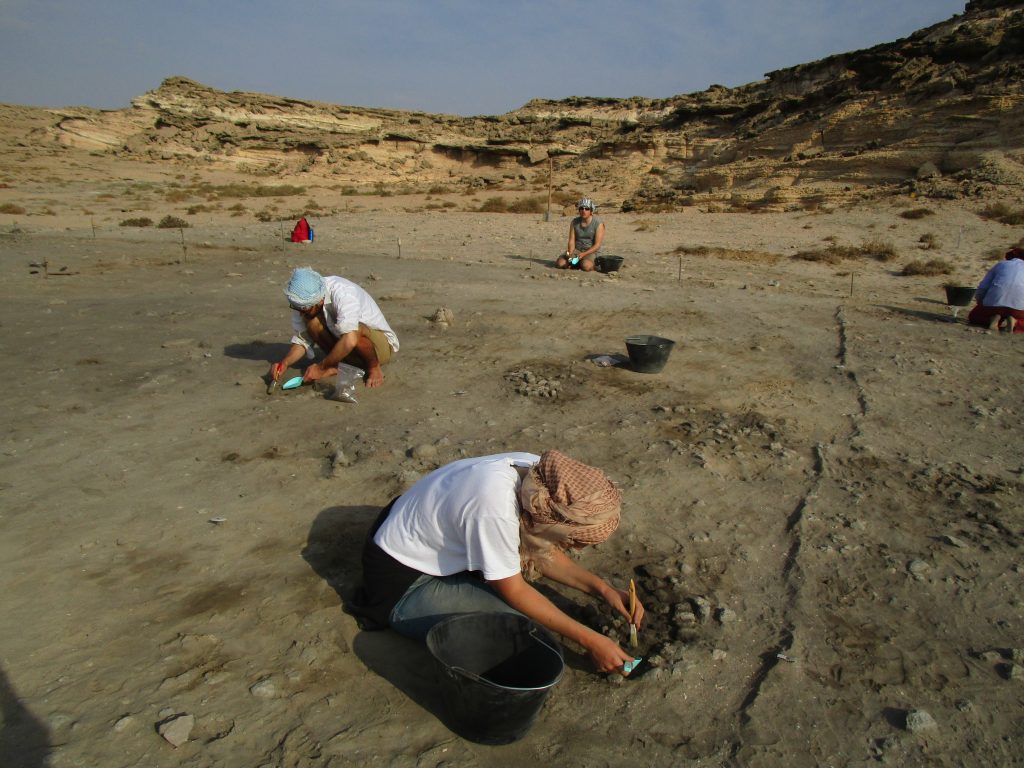
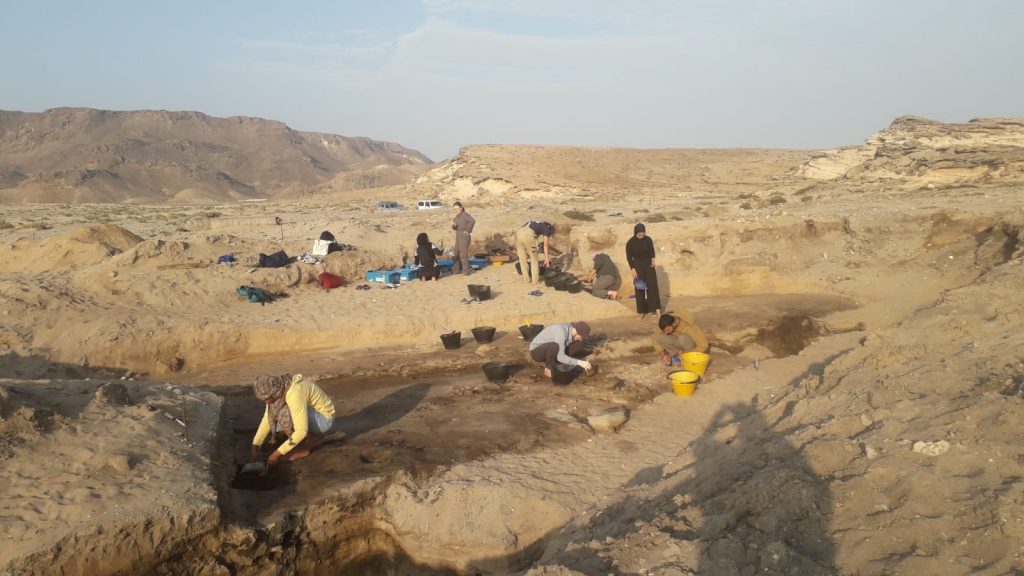
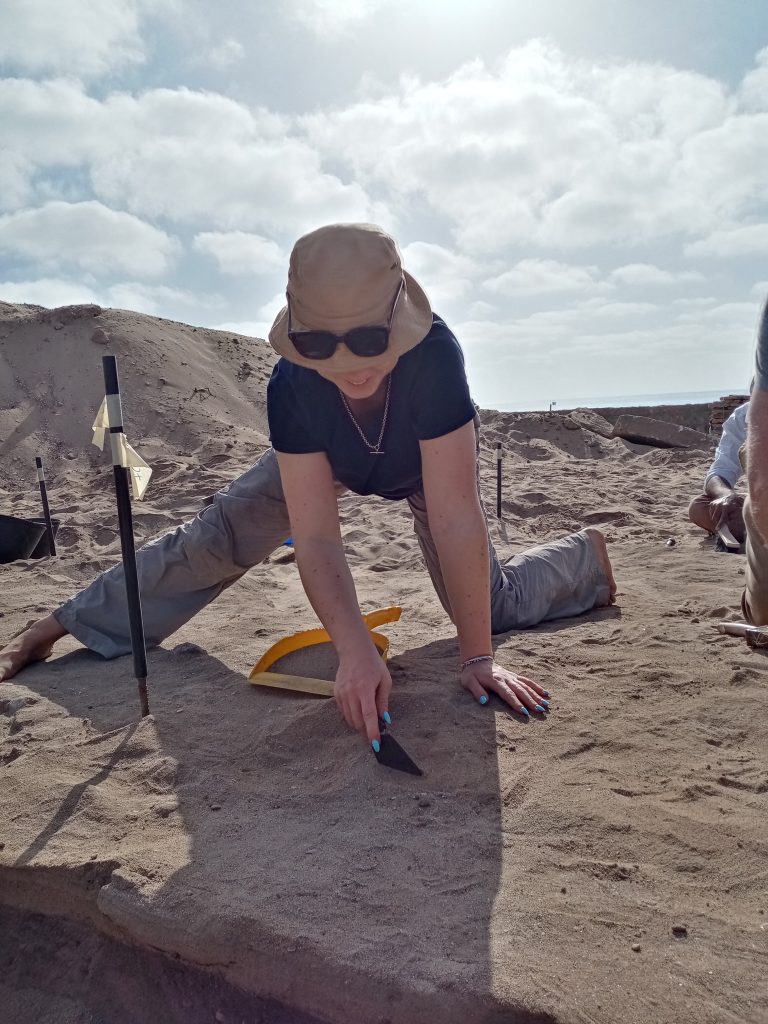
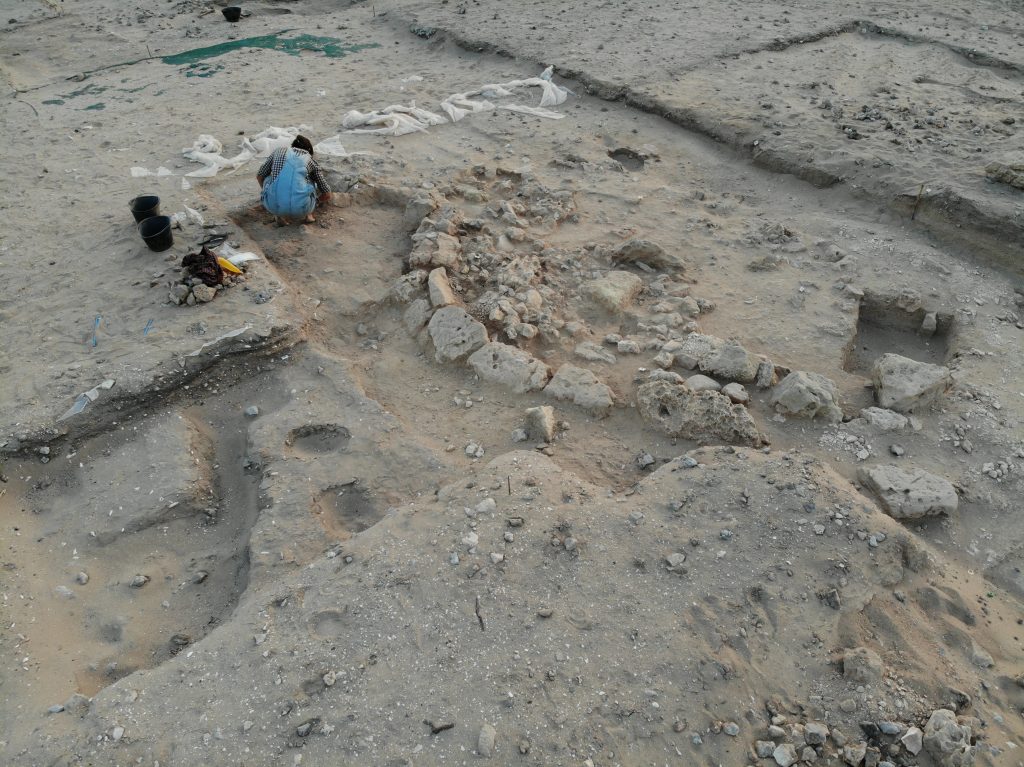
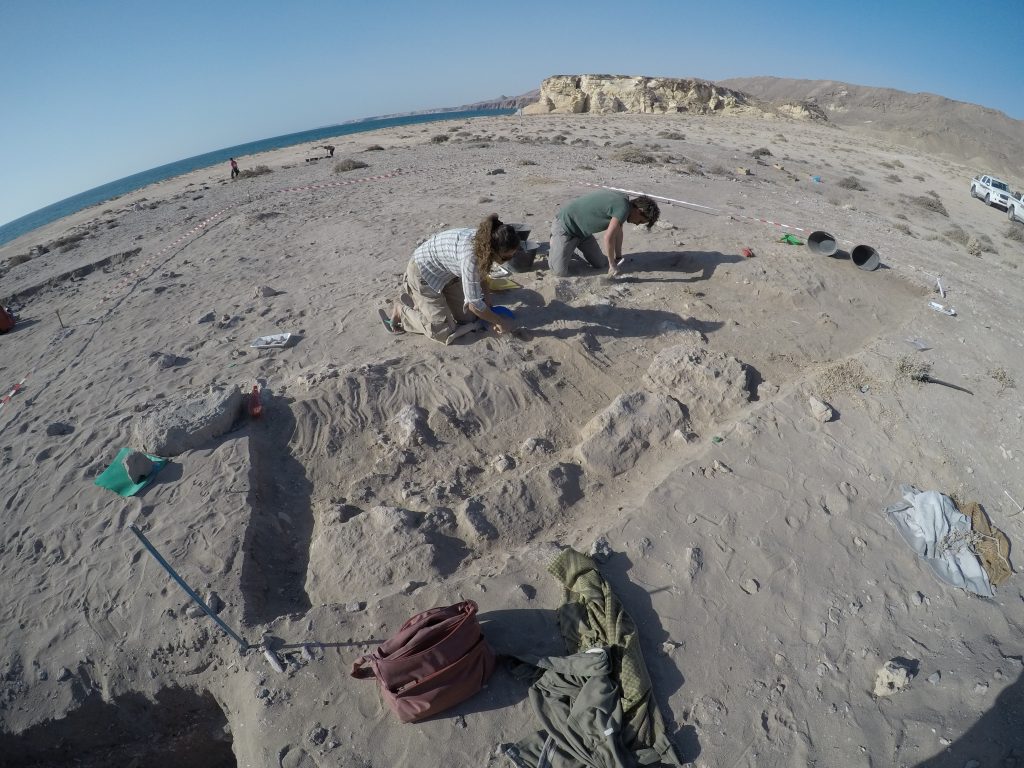
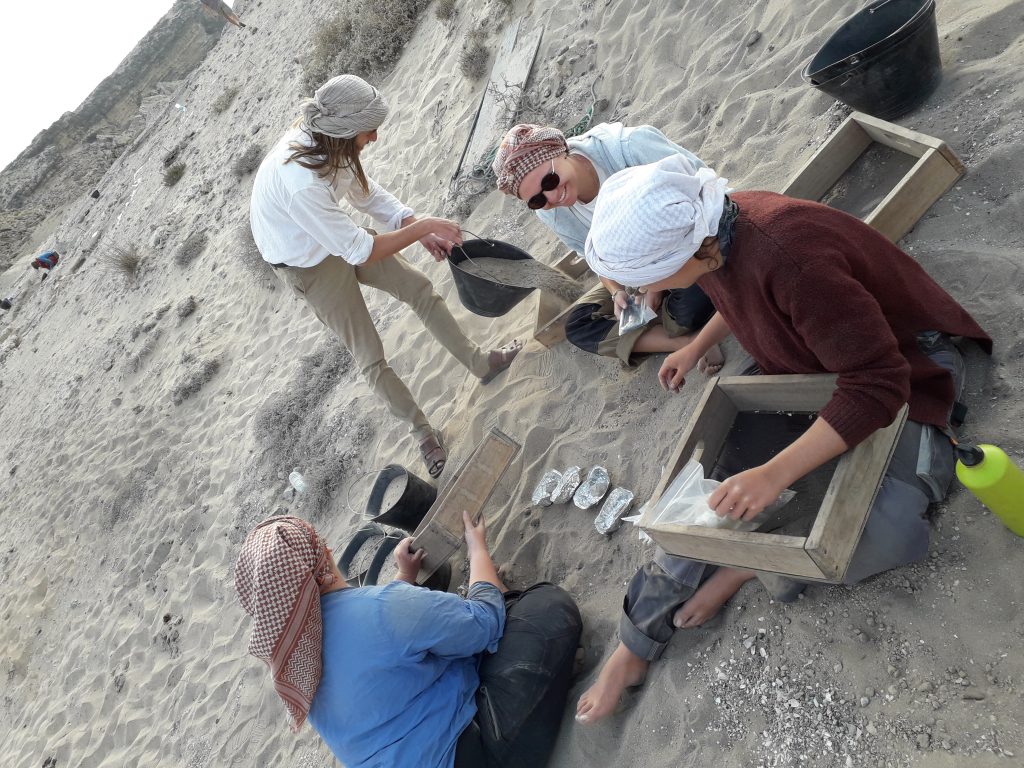
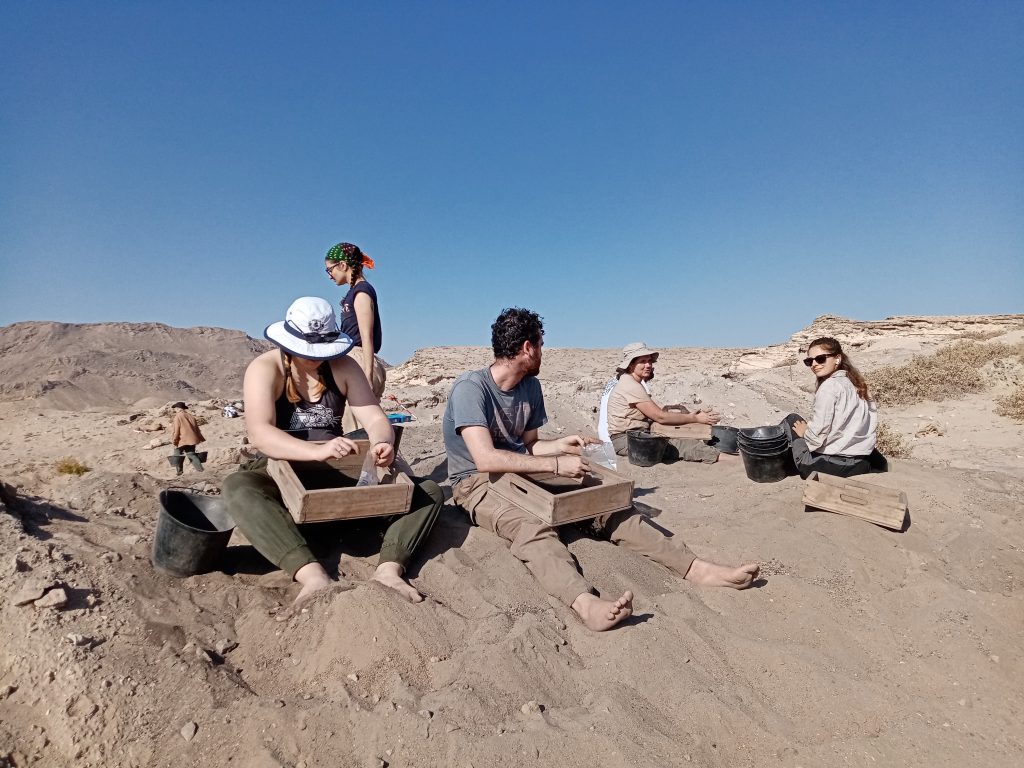
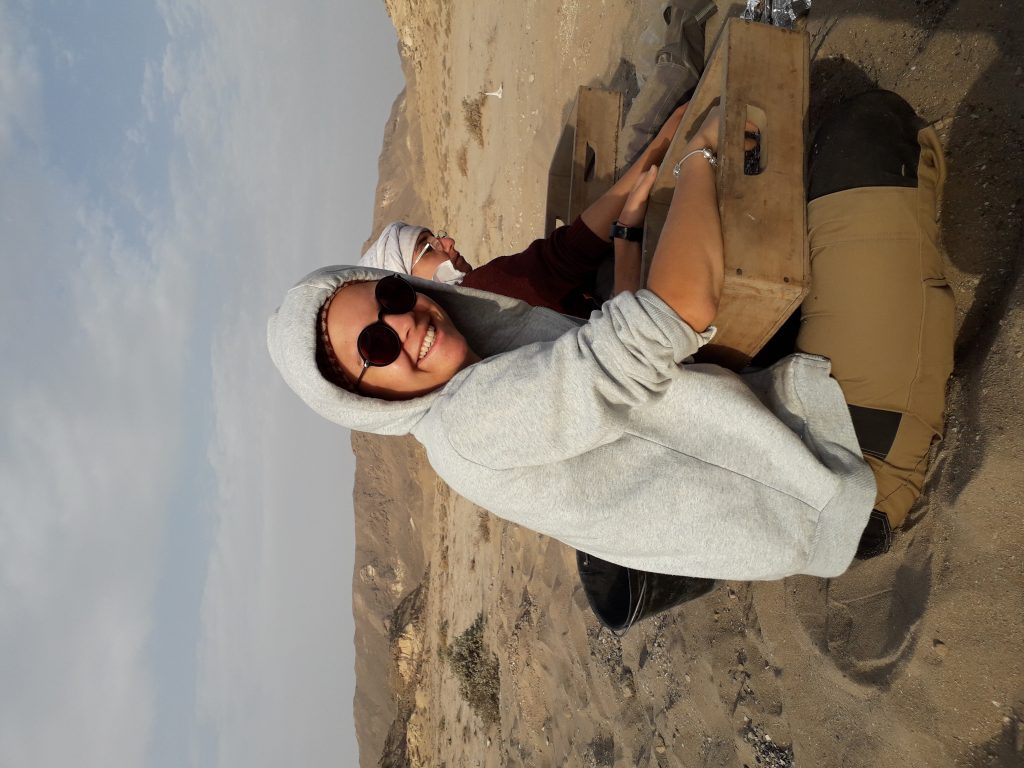
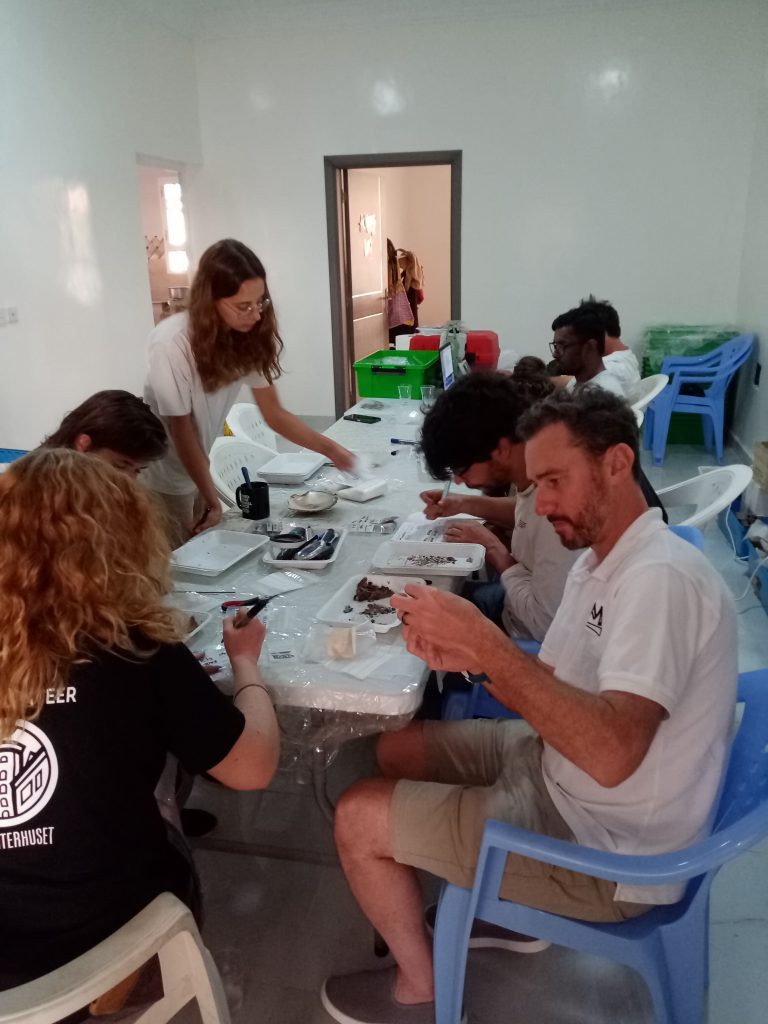
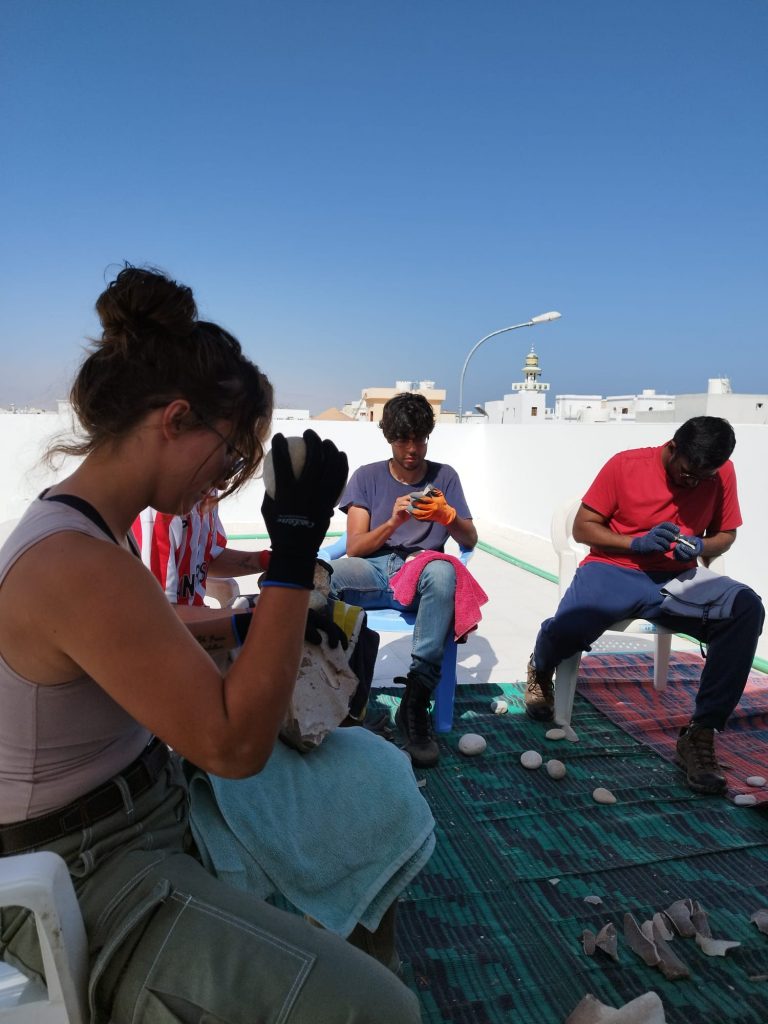
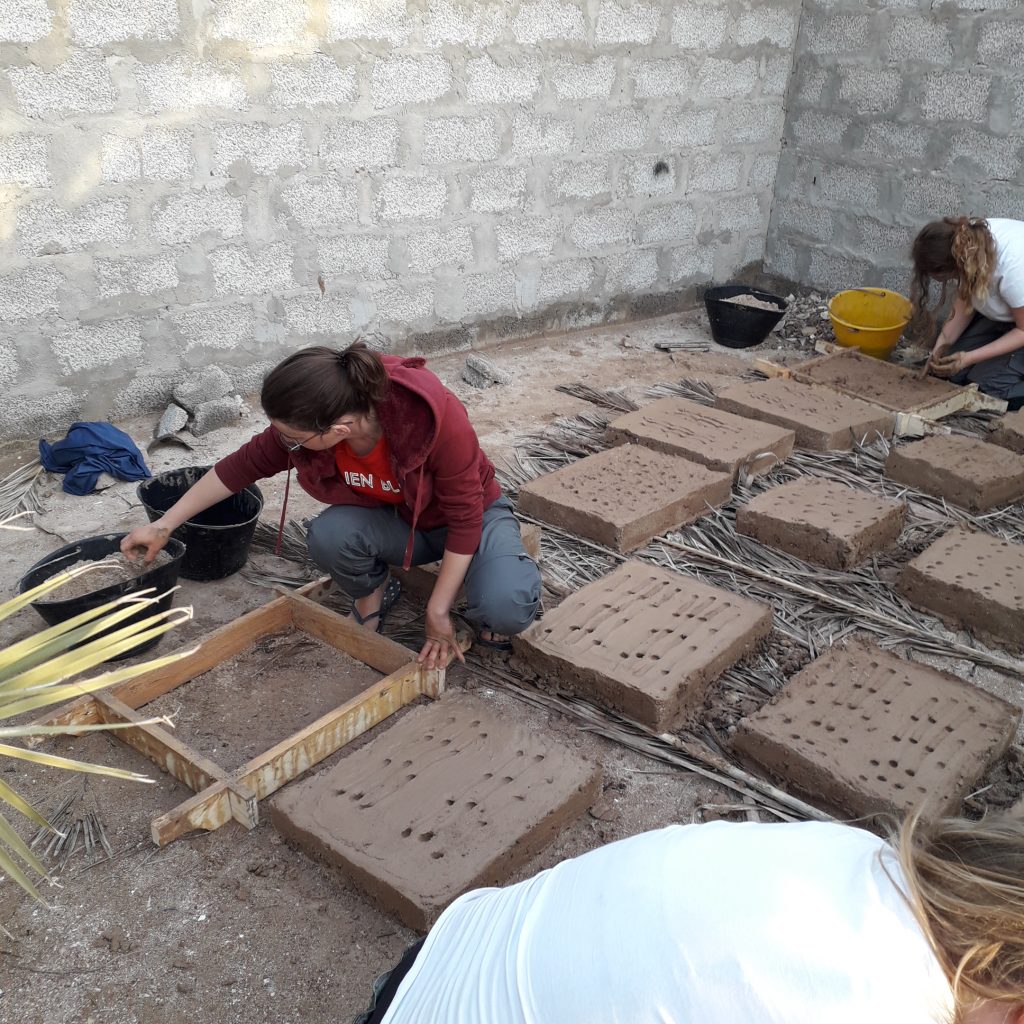
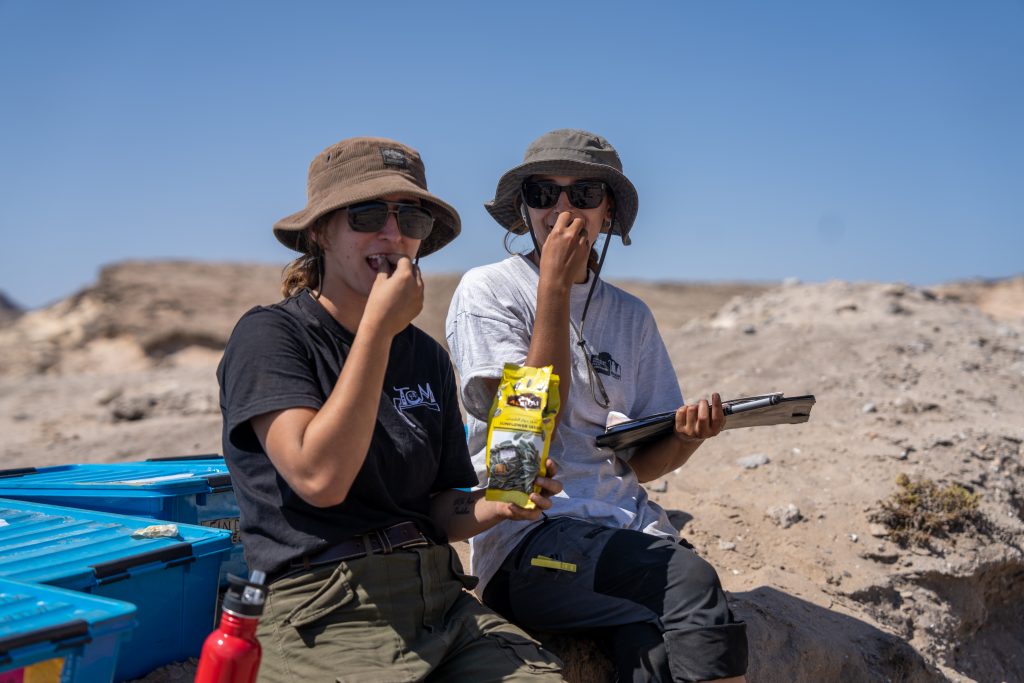
Location: Unnamed Road, Oman
Season: November 10, 2023 to March 1, 2024
Session Dates: November - March
Application Deadline: September 28, 2023
Deadline Type: Exact Date
Program Type:
Field School
RPA Certified:
No
Project Director:
Valentina Azzarà and Alexandre De Rorre
Project Description:
The Ras Al Jinz Project, led by Valentina Azzarà and Alexandre De Rorre, has been exploring since 2017 the settlement site of RJ-3, in the natural reserve of Ras Al Jinz, bordering the Indian Ocean on the easternmost cape of the Arabian Peninsula. The site was occupied from the Late Neolithic to the end of the Early Bronze Age (EBA, 4th-3rd mill. BCE), as revealed by a long sequence of occupations, quite exceptional for a coastal site in the region.
During the EBA, RJ-3 most likely formed a single settlement – extended on 3 or 4 ha – with the well-known site of RJ-2, located on the other side of the bay. Explored for more than 25 years, RJ-2 is a key-site of Arabian archaeology and one of the foremost EBA settlements in the region. It shows solid evidence for interactions with Mesopotamia and the Indus Valley, and has yielded the richest assemblage of seals in Oman, as well as a large amount of bitumen slabs from boat caulking.
Closer to the seashore, RJ-3 was a specialised area related to different sorts of craft activities, including in particular the production of shell and stone ornaments. These activities were associated with different types of evidence – short-lasting huts and permanent stone structures.
THE FIELD SCHOOL
Time Of Magan Field School programs are an excellent opportunity for BA and MA students to gain experience in the field of Arabian Archaeology, and more broadly in settlement archaeology (excavation and documentation) and artefacts/ecofacts processing and recording.
We provide a range of expert-led research focused training designed to introduce students to practical archaeological field methods, and to build and expand on knowledge and experience gained during your university studies.
OUR HQ
Students and most staff members will be staying in a dedicated house in a quiet neighbourhood in the city of Sur, in the Sharqiyah region. The accommodations are shared bedrooms, with three to five persons per room, and usually basic shower and toilet in each room. Sheets and pillows will be provided, but participants should bring towels and sleeping bags.
THE FIELD WORK
Once we start field work, the day is fairly full. We have breakfast at 6:00 am and we leave the house for the field at 6:30 am – arriving there by 7:00 am.
We have a break at around 10:00 am with a quick snack. Work in the field ends each day at 1:30 pm.
After the lunch-break, the afternoons are reserved for lab activities, which can be followed by core and thematic lectures. Around 8:00 pm we eat dinner as a group at the house.
Thursdays are dedicated to core lectures and experimental archaeology projects such as mudbrick making, bead making, etc.
Weekend is from Thursday afternoon to Friday night and sometime could be extended for trip purposes. It is advised to arrive in Oman on Thursday to start the field work at the beginning of the working week (Saturday).
The training includes:
In-field methods and
post-excavation procedures
In the field
Post-excavation laboratory activities
FEE OVERVIEW
The field school fees cover in-field transportation, field equipment, accommodation, all meals except Friday, instructor fees and field trips to site of interest in the area.
Weekends are yours to explore the cultural and natural attractions in the area
Airfare and your personal gear are your responsibility.
At the end of the Field Program, students will receive a certificate of participation stating the hours and activities of the training. Participants that perform remarkably well may receive a letter of recommendation from our organisation upon request.
No prior experience on an excavation is required to participate in this field school.
APPLICATION AND FEES
Minimum 7 / Maximum 30 participants per 2-weeks session
Period: November 10, 2023– March 1, 2024 (arrival on Thursdays, beginning of work in the field on Saturdays)
2 weeks minimum of participation are required. It is advised to participate during 4 weeks.
All fees should be paid 1 month before arrival.
Complete refund until two weeks before the departure date. 30% fee will be kept in case of cancellation within two weeks from the departure date.
Airfare, visa and personal insurance not included in the fees
Participants must operate under an Official Visa issued by the Ministry of Heritage & Tourism at a cost of $55 (see above); the active participation in the Project of individuals who entered Oman under a Tourist visa is not allowed. Documents for issuing the Official Visa (Passport copy, father’s name, and photograph) must be provided as soon as possible and at the latest 45 days before the arrival of the applying individual in Oman.
The field school operates on a first arrived first served policy. Upon acceptance to the field school, a $555 wire transfer will be requested to secure a spot in our program and cover the official visa fees. This fee is not refundable.
Application method: Send CV and letter of motivation to fieldschooloman@gmail.com
Application deadline date: Applications will be considered upon submission
But please note!
Participating in an archaeological campaign is an exciting work, but it is also sometimes tiring and challenging. It is important that you are ready and fit for outdoor physical activity. The typical day starts early in the morning and runs until late-afternoon.
Project leaders:
Valentina Azzarà (Research Associate- Faculty of Archaeology, Leiden University/ National Geographic Explorer)
Alexandre De Rorre (Independent Researcher)
Our partners
Ministry of Heritage and Tourism of the Sultanate of Oman
Leiden University, Faculty of Archaeology (Netherlands)
UMR 7041 – ArScAn VEPMO – Maison René Ginouvès, Nanterre (France)
Period(s) of Occupation: Bronze Age
Notes:
Participating in an archaeological campaign is an exciting work, but it is also sometimes tiring and challenging. It is important that you are ready and fit for outdoor physical activity. The typical day starts early in the morning and runs until late-afternoon.
Project Size: 1-24 participants
Minimum Length of Stay for Volunteers: 2 weeks
Minimum Age: 18
Experience Required: No prior experience on an excavation is required to participate in this field school.
Room and Board Arrangements:
OUR HQ
Students and most staff members will be staying in a dedicated house in a quiet neighbourhood in the city of Sur, in the Sharqiyah region. The accommodations are shared bedrooms, with three to five persons per room, and usually basic shower and toilet in each room. Sheets and pillows will be provided, but participants should bring towels and sleeping bags.
FEE OVERVIEW
The field school fees cover in-field transportation, field equipment, accommodation, all meals except Friday, instructor fees and field trips to sites of interest in the area.
Weekends are yours to explore the cultural and natural attractions in the area
Airfare and your personal gear are your responsibility.
At the end of the Field Program, students will receive a certificate of participation stating the hours and activities of the training. Participants that perform remarkably well may receive a letter of recommendation from our organisation upon request.
Time of Magan
Einsteinweg 2
Leiden
2333 CC
The Netherlands
Phone: +31 71 527 2727
The AIA is North America's largest and oldest nonprofit organization dedicated to archaeology. The Institute advances awareness, education, fieldwork, preservation, publication, and research of archaeological sites and cultural heritage throughout the world. Your contribution makes a difference.